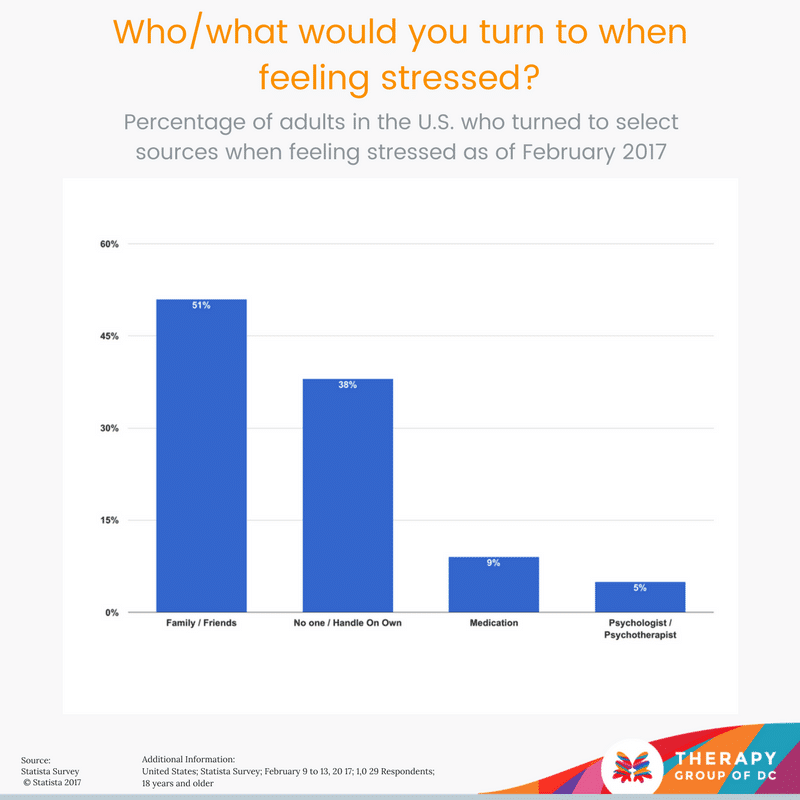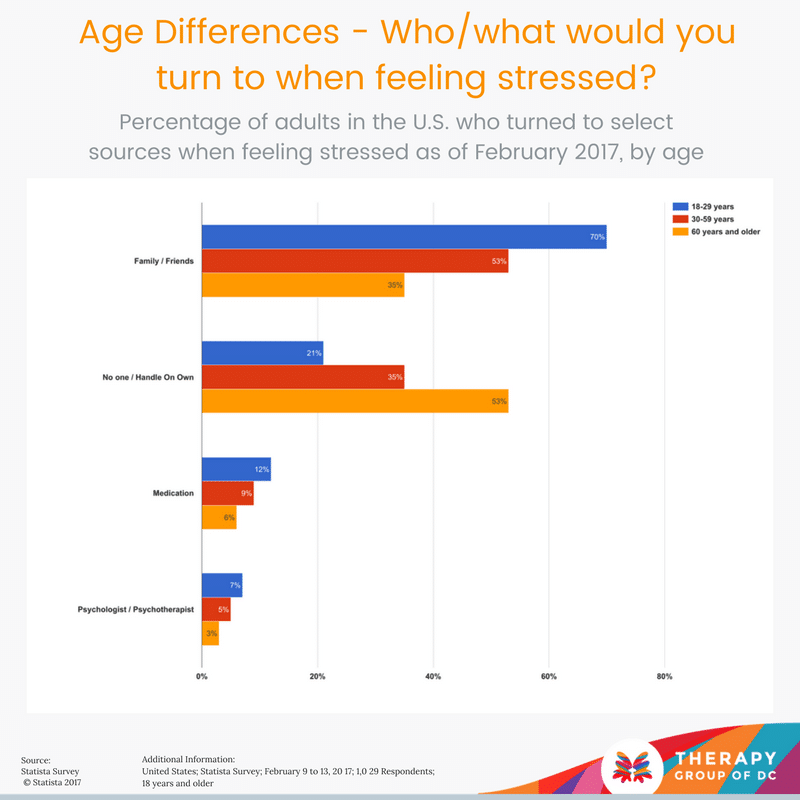Research On Who or What People Turn to When Stressed
Stress is exceedingly common in work or life at one point or another. People deal with it in different ways, such as going it alone or seeking medication or therapy. We were curious to know more about the top ways that people deal with daily stress as we work to improve our ability to better help those who seek therapy in DC with us. A recent survey by Statista sheds light on how people tackle stress.
Friends and Family Are Tops When Dealing with Stress
As you can see in the chart above, most people look to friends and family for support during times of stress. The survey revealed 51 percent of all individuals rely on these vital relationships, making their strength essential to coping with stress, and to mental health more broadly.
Interestingly, the reliance on close relationships depends on the age of those surveyed. Seventy percent of 18-29 year-olds go to those closest to them during challenging times. This is compared to 53 percent of 30-59 year-olds and 35 percent of those over the age of 60.
Although most middle-aged individuals choose close relationships over other forms of stress support, the pattern is the opposite for those 60 and older. A full 53 percent of that age group prefer to go it alone and depend on self-reliance instead of friends, medication, or psychotherapy.
Regardless of age, since the relationships with family and friends are the most common mechanism for off-setting stress, it’s vital to develop and protect healthy, long-lasting connections with others.
Self-Reliance
Self-reliance, the second most popular option overall, and particularly relied upon up by those 60 and older, has positive implications. It can signal confidence and belief in your ability to successfully handle difficult moments and situations. This concept is referred to as self-efficacy and is a good thing to cultivate.
On the other hand, using self-reliance to the extreme can be counter-productive and leave someone feeling isolated and alone and driven by myths about seeking help and therapy.
Medication and Therapy
Rounding out the list of top 4 options, survey respondents also sought prescribed medication or talk therapy to deal with stress. Nine percent of all respondents, regardless of age group, sought medication for stress, while five percent went to therapy. At a more detailed level, younger people tend to use these methods more often.
Reasons to Seek Therapy
These survey data reflect what we hope. That is, we hope that people have powerfully restorative close relationships and a strong belief in themselves to get them through rocky times.
Yet, we know that close relationships or even the sturdiest of self-confidence aren’t always sufficient to successfully deal with life’s struggles. Or, sometimes, those parts of life themselves need improvement. Contact us and let us know if we can be of help.


